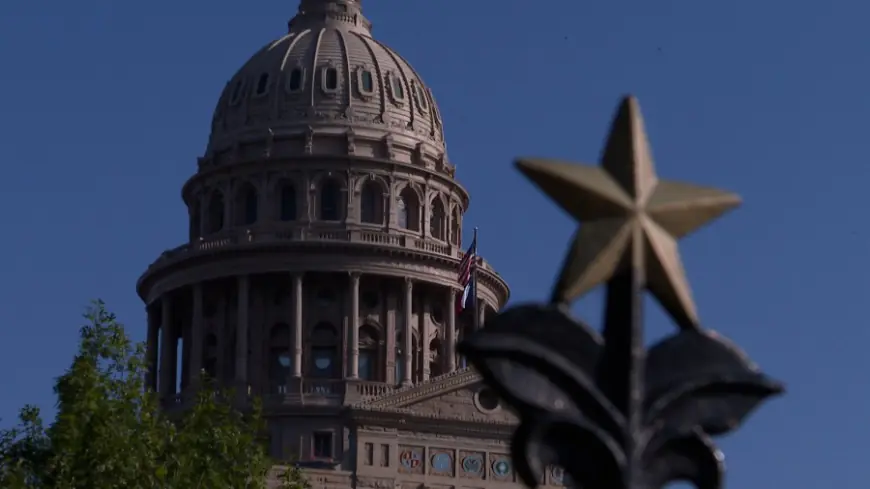Texas lawmakers file first LGBTQ-related bills of 2025 session
Democrats seek to block discrimination, and one Republican resurrects bills that died last session

AUSTIN (KXAN) — Bill filing for the Texas Legislature began Tuesday, and lawmakers have already filed proposals directed at gender and sexual orientation.
The majority came from Senators Bob Hall and Jose Menéndez, who each filed more than 60 bills on Tuesday. But their 2025 gender-related bills are rewrites and resubmissions of ones filed in 2023 that didn't go far.
KXAN reached out to Hall and Menéndez and requested interviews or statements about their bills.
Anti-discrimination bills
Senate Bill 150, filed by Menéndez and Senators Carol Alvarado, César Blanco, Molly Cook, Sarah Eckhardt and Roland Gutierrez, would amend state law to prohibit discrimination on the basis of sexual orientation and gender identity/expression. It also would add provisions to block discrimination on the basis of military service.
That team, sans Alvarado, also filed SB 168. That bill would lead to disciplinary action for therapists and counselors who attempt to change a child's sexual orientation or gender identity.
SB 168 doesn't prevent mental health workers from intervening in or changing a minor's unlawful conduct or unsafe practices.
Menéndez also filed SB 189, which adds gender identity to the state's criminal procedure code. That would allow criminal court judges to make "an affirmative finding of fact" during judgement, if ruled that an offense occurred because of the victim's gender identity.
The 2023 versions of these three bills never left their initial committee assignments.
Defining male and female
SB 84, from Hall, would define male and female in Texas law by development of reproductive organs.
"'Female' means an individual whose biological reproductive system is developed to produce ova," SB 84 reads. "'Male' means an individual whose biological reproductive system is developed to fertilize the ova of a female."
SB 84 makes no exceptions for intersex people, who may not fall into either category. It also prevents government agencies from referencing non-binary gender identities on documents.
The bill also would enshrine in Texas law that men are "bigger, stronger, and faster" than women and that women are "more physically vulnerable" than men. It then would use those claims to codify that women and men require separate social, educational, athletic spaces.
Hall previously attempted this bill in 2023. It did not progress past the Senate State Affairs committee. The 2024 version is nearly identical.
LGBTQ+ topics in schools
SB 86, a bill for "parental rights in public education," would require schools to notify parents about their student's mental, emotional and physical health issues. But it muddles that goal by also including a ban on teaching LGBTQ-related topics at public and charter schools.
It also would require public schools to inform parents about a student's perception of their gender identity, "if that perception is inconsistent with the student's biological sex as determined by the student's sex organs, chromosomes, and endogenous hormone profiles."
The bill doesn't describe how employees and independent contractors would know there is inconsistency.
While an outright ban of LGBTQ+ student clubs wouldn't be legal under current Supreme Court precedence, SB 86 would require parental consent for a student to participate in those groups.
Hall filed a version of SB 86 in 2023 that didn't leave the Senate Education committee.
HB 344, filed by Rep. Carl Tepper, is a bill solely focused on banning LGBTQ-related topics in schools. It doesn't prevent students' speech or expression, nor does it place requirements on school clubs.
Transition-related care & insurance
Hall's SB 115 seeks to ban some insurance plans from covering transition-related care and would allow lawsuits against doctors for providing such care.
It defines transition-related care as medications and surgeries that cause infertility or remove "otherwise healthy or non-diseased body part or tissue," if done "for the purpose of transitioning a patient's biological sex." These include vasectomies, hysterectomies and likely plastic surgeries, but in practice, only if a transgender person wants them.
The insurance portion of the bill only applies to Texas state employees and retirees, public school and university employees, and Medicaid recipients.
Hall previously filed a version of this bill in 2023. It passed a Senate vote, but failed to progress in the House.
SB 116 would allow minors who received transition-related care to sue their doctors.
Rep. Jeff Leach filed HB 778, which would require insurance providers who cover transition-related care to also cover treatment to reverse gender transition.
What's Your Reaction?









































































































